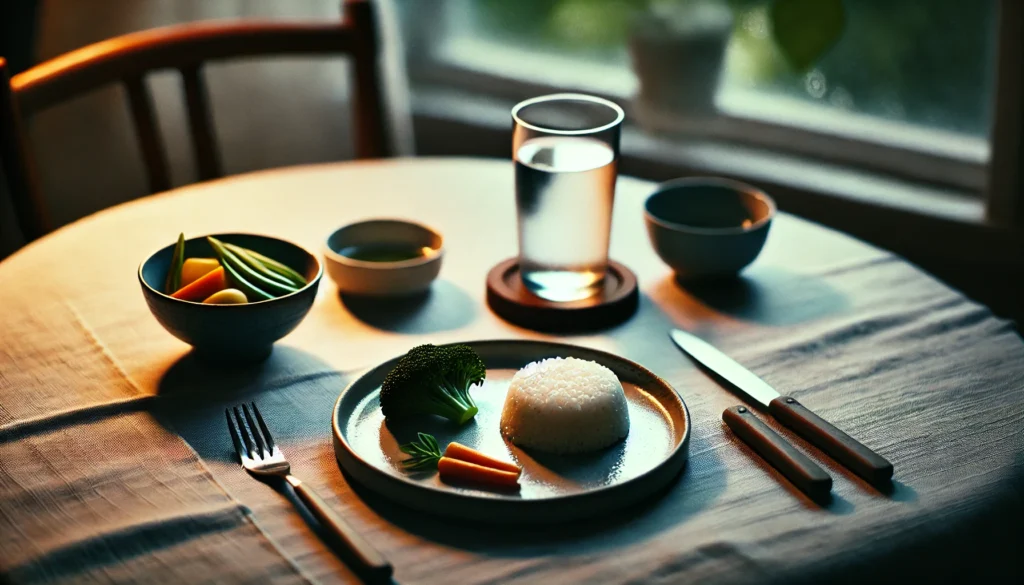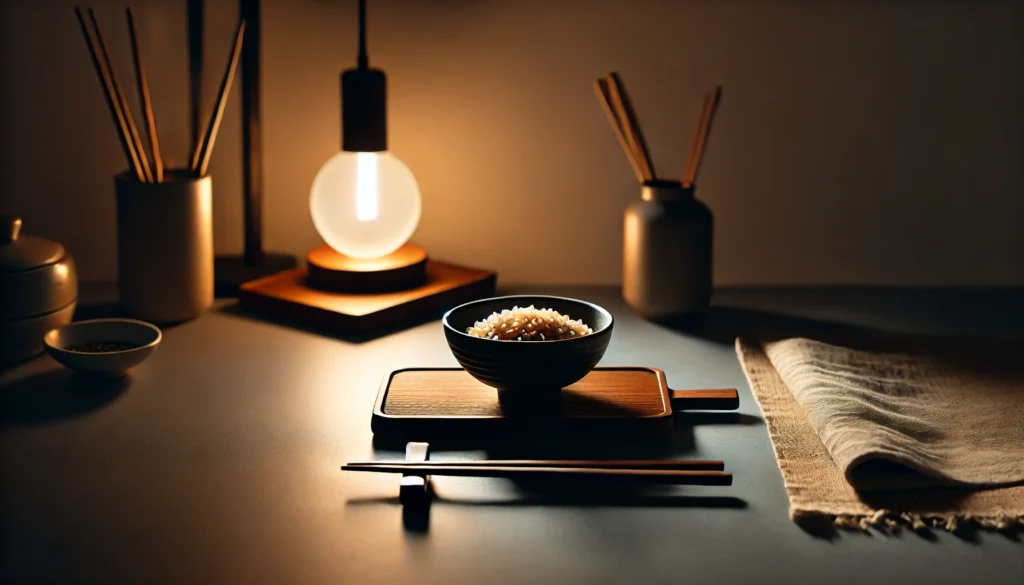Before we focus on rice, it’s essential to understand what makes certain foods conducive to sleep. Foods that are rich in carbohydrates, such as rice, can increase the availability of tryptophan in the brain. Tryptophan is an amino acid that the body uses to produce serotonin, a neurotransmitter that promotes relaxation and sleep.
The Role of Tryptophan in Sleep
Tryptophan is a vital amino acid that contributes significantly to sleep regulation. Once ingested, it is converted into serotonin, which in turn can be transformed into melatonin, the hormone that governs sleep cycles. Foods high in tryptophan, like turkey and eggs, are often recommended for better sleep, and rice can enhance its effects by facilitating its absorption into the brain.
Insulin and Amino Acid Dynamics
Moreover, carbohydrates can increase the production of insulin, which helps clear competing amino acids from the bloodstream, allowing more tryptophan to cross into the brain. This process can enhance the production of melatonin, a hormone that regulates sleep cycles. The relationship between insulin spikes and amino acid absorption is complex, but it underscores the importance of carbohydrate-rich foods like rice in sleep promotion.
Carbohydrate Types and Their Impact
Not all carbohydrates are created equal. Simple carbohydrates, found in sugary snacks, can lead to rapid blood sugar spikes and crashes, potentially disrupting sleep. In contrast, complex carbohydrates like those in rice release energy more steadily, supporting sustained tryptophan transport and a more stable sleep cycle.
You May Also Like: Essential Vitamins for Better Sleep Quality
How Rice Fits Into the Sleep Equation
Rice, particularly white rice, has a high glycemic index (GI), which means it causes a rapid increase in blood sugar levels. This spike in glucose can lead to a subsequent increase in insulin, facilitating the entry of tryptophan into the brain. As a result, consuming rice before bed may help to promote sleepiness and improve sleep onset.
The Glycemic Index and Sleep Onset
The glycemic index (GI) is a measure of how quickly a food raises blood sugar levels. High-GI foods like white rice can be beneficial before bed due to their ability to quickly elevate insulin, promoting faster sleep onset. Studies have shown that a high-GI evening meal can shorten the time it takes to fall asleep, making rice an attractive option for those struggling with sleep latency.
Comparing White and Brown Rice
White rice is often highlighted for its sleep-inducing properties due to its higher GI compared to brown rice. However, brown rice, with its additional fiber content, provides a slower release of energy, which might benefit those who wake frequently during the night. Understanding the differences between rice types can help tailor dietary choices to individual sleep needs.
Timing and Portion Control
While rice can aid in sleep, timing and portion size are crucial. Consuming a small portion of rice about an hour before bed can maximize its benefits without causing discomfort or excess caloric intake. This strategic timing allows for optimal insulin response and tryptophan availability, supporting a restful night’s sleep.

The Benefits of Eating Rice Before Sleep
Enhanced Sleep Quality
Several studies suggest that consuming high-GI foods like rice before bed can improve sleep quality. In a study published in the American Journal of Clinical Nutrition, researchers found that participants who consumed jasmine rice before bedtime fell asleep faster than those who ate lower-GI foods. This suggests that rice may be one of the best foods to promote sleep due to its ability to elevate insulin and tryptophan levels.
Improved Sleep Duration
Beyond just falling asleep faster, eating rice might also contribute to longer sleep duration. Research indicates that a balanced increase in serotonin and melatonin from rice consumption can help maintain sleep throughout the night, reducing instances of waking and promoting longer, uninterrupted sleep.
Potential Weight Management
Interestingly, eating rice before bed might also contribute to better weight management. A study published in the journal Obesity Research & Clinical Practice found that participants who included rice in their diet had lower body weight and waist circumference than those who did not. This could be due to rice’s ability to promote satiety and reduce overall caloric intake.
Satiety and Caloric Control
Rice is known for its ability to make meals more filling, which can prevent late-night snacking and help control overall caloric intake. By feeling more satisfied after a rice-inclusive meal, individuals may find it easier to adhere to dietary goals and maintain a healthy weight.
Cultural and Historical Context
In many cultures, rice has been a staple food for centuries, often consumed as part of the evening meal. This historical context supports the idea that rice may naturally fit into the nightly routine, providing not only nutritional benefits but also cultural and emotional comfort.
Traditional Practices and Sleep
Historically, rice has been associated with evening meals in many cultures, suggesting a long-standing recognition of its calming effects. This traditional practice aligns with modern findings, providing a cultural rationale for rice’s role in promoting restful sleep.
Emotional Comfort and Ritual
Beyond its nutritional benefits, rice can offer emotional comfort and a sense of ritual that prepares the mind for sleep. The act of consuming a warm, familiar meal can have psychological benefits, easing stress and fostering a peaceful transition to bedtime.
The Potential Drawbacks of Eating Rice Before Sleep
While rice can be beneficial for sleep, it’s crucial to be aware of potential downsides.
Risk of Overeating
Rice is calorie-dense, and consuming large portions before bed can lead to excessive caloric intake. This may negate the potential weight management benefits and contribute to weight gain if not balanced with overall caloric needs.
Portion Awareness and Control
Being mindful of portion sizes is vital when incorporating rice into a bedtime routine. A half-cup serving is generally sufficient to gain the benefits without overeating. Awareness of portion control can prevent the potential for excess calorie consumption, which could undermine weight management goals.
Impact on Blood Sugar Levels
For individuals with insulin sensitivity or diabetes, consuming high-GI foods like rice before bed can lead to undesirable fluctuations in blood sugar levels. It is essential for these individuals to monitor their intake and consider lower-GI alternatives.
Alternatives for Blood Sugar Management
For those concerned about blood sugar, opting for brown rice or pairing rice with protein and fiber can moderate its glycemic impact. These strategies can help stabilize blood sugar levels and mitigate potential adverse effects.
Individual Variability and Sensitivity
Everyone’s metabolism is different, and individual responses to rice consumption can vary. Understanding personal dietary needs and consulting with a healthcare provider can help tailor rice consumption to suit specific health concerns.

Alternatives to Rice for Better Sleep
While rice is a viable option for promoting sleep, there are other foods that can be just as effective.
Almonds
Almonds are a source of magnesium, a mineral that plays a crucial role in sleep regulation. Consuming a handful of almonds before bed can help relax muscles and promote sleepiness.
Magnesium’s Sleep-Enhancing Effects
Magnesium is known to improve sleep quality by activating the parasympathetic nervous system, which helps relax the body. Almonds, rich in magnesium, can be a natural alternative to rice, promoting muscle relaxation and reducing stress.
Bananas
Bananas are rich in potassium and magnesium, both of which aid in muscle relaxation and can enhance sleep quality.
Potassium’s Role in Sleep
Potassium supports muscular relaxation and the regulation of blood pressure, both important for a restful sleep. Consuming bananas can complement the effects of magnesium, making them a powerful duo for enhancing sleep quality.
Oatmeal
Oatmeal is another high-GI food that can promote sleep. It contains melatonin and complex carbohydrates that help increase insulin production and tryptophan availability.
Oatmeal’s Multifaceted Benefits
Oatmeal not only offers a rich source of complex carbohydrates but also provides melatonin, directly influencing sleep cycles. Its slow digestion helps maintain steady blood sugar levels, ensuring a more restful night’s sleep without the rapid spikes associated with other high-GI foods.
Practical Advice for Consuming Rice Before Bed
If you decide to incorporate rice into your bedtime routine, moderation is key. A small portion of rice, about half a cup, can provide the benefits without leading to excessive caloric intake. Pairing rice with lean protein or vegetables can create a balanced meal that satisfies hunger and promotes sleep.
Creating Balanced Meals
Combining rice with lean proteins or vegetables can enhance its nutritional profile and prevent overconsumption. Proteins and vegetables can slow the absorption of carbohydrates, promoting a more stable release of insulin and tryptophan.
Timing Your Meal
Timing your rice consumption is crucial. Eating rice approximately an hour before bed can allow sufficient time for digestion and the physiological processes needed to promote sleep. This ensures that you benefit from its sleep-inducing properties without experiencing discomfort or disrupted sleep.
Listening to Your Body
Pay attention to how your body responds to consuming rice before bed. Some individuals may find it beneficial, while others may not notice significant changes. Adjust your intake based on your personal experience and consult with a nutritionist if necessary.

Conclusion: Should You Eat Rice Before Bed?
In conclusion, rice can be an effective food for promoting sleep due to its high-GI properties and ability to increase tryptophan availability. However, it is essential to consume it in moderation and consider individual health needs, such as blood sugar management. By understanding the effects of eating rice before bed and exploring alternative sleep-inducing foods, you can make informed choices that support both your sleep quality and overall health.
Individual Considerations and Recommendations
Every individual’s dietary needs are different, and what works for one person may not work for another. It’s important to consider personal health conditions and consult with healthcare professionals when making dietary changes aimed at improving sleep.
Integrating Rice into a Holistic Sleep Strategy
While rice can be a part of a sleep-enhancing diet, it should not be the sole focus. Integrating rice into a broader strategy that includes stress management, regular exercise, and a consistent sleep schedule can maximize its benefits.
Final Thoughts on Rice and Sleep
For those interested in optimizing their diet for better sleep, rice can be a valuable addition, but it should be part of a holistic approach that includes a balanced diet and healthy sleep habits. By weaving historical context and current research, this article aims to provide a comprehensive overview of how rice and other foods can impact sleep, helping you make informed dietary decisions for improved rest.
Further Reading:
What to Eat (and What Not to Eat) Before Bedtime
Turns Out Eating This Popular Carb Can Help You Drift Off To Sleep With Ease
Important Note: The information contained in this article is for general informational purposes only, and should not be construed as health or medical advice, nor is it intended to diagnose, prevent, treat, or cure any disease or health condition. Before embarking on any diet, fitness regimen, or program of nutritional supplementation, it is advisable to consult your healthcare professional in order to determine its safety and probable efficacy in terms of your individual state of health.
Regarding Nutritional Supplements Or Other Non-Prescription Health Products: If any nutritional supplements or other non-prescription health products are mentioned in the foregoing article, any claims or statements made about them have not been evaluated by the U.S. Food and Drug Administration, and such nutritional supplements or other health products are not intended to diagnose, treat, cure, or prevent any disease.


